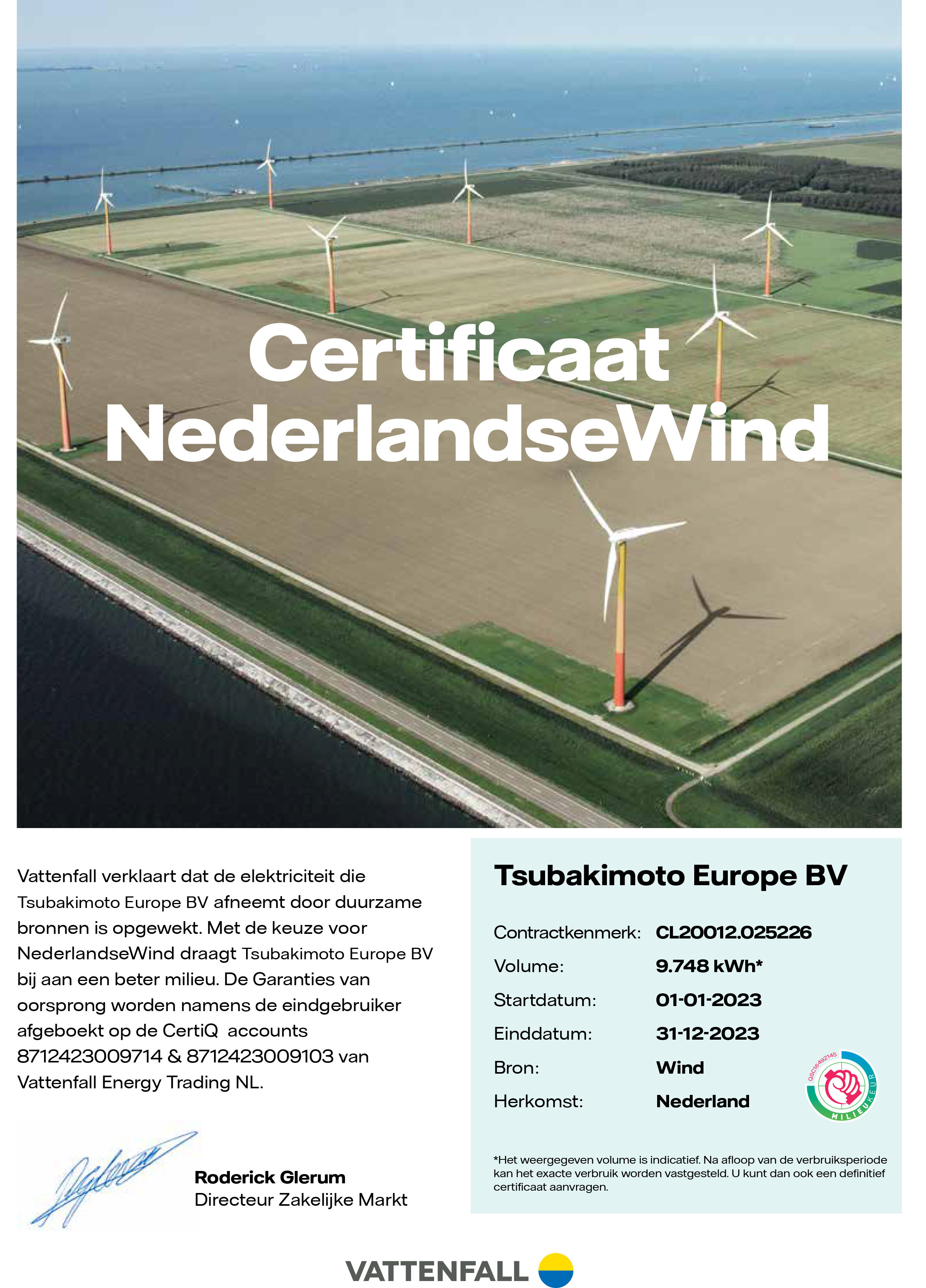The Tsubaki Group has, since its founding in 1917, endeavoured to achieve sustainable growth by fulfilling its corporate social responsibilities as a manufacturer by providing products that are directly connected to power and energy saving. This is truly the culmination of Tsubaki's Mission, to "advance the 'art of moving' beyond expectations," as stated in our corporate philosophy. We believe this will directly contribute to the Sustainable Development Goals (SDG's), adopted by the United Nations, that represent the challenges currently facing the global community.
Explore the Tsubaki Group's Environmental Philosophy »Tsubakimoto Europe B.V., as part of the global Tsubaki Group, is committed to assemble and supply products in an environmental responsible manner. These processes are managed to minimize the environmental impacts where we can reasonably expect to have an influence. All products and processes are in full compliance with the applicable environmental laws and regulations.

In order to reach continuous improvement on environmental areas we have, as a Group company, implemented an Environmental Management System that is in line with the overall global Tsubaki Group philosophy and policy. The Environmental Management System is in compliance with the requirements of NEN-EN-ISO 14001:2015.
We continuously improve our Environmental Management System by monitoring and reviewing our goals to prevent and reduce environmental impact. Specific themes for Tsubakimoto Europe B.V. are: monitoring and reducing electricity and separate waste. We strive to continuously improve our processes with the objective to reduce or eliminate the use of environmentally damaging products or materials and with the objective to save natural sources.
Since actions speak louder than words we like to share the annual results of our efforts in below infographics.
The 21% electricity saved compared to 2018 is the result of a few specific countermeasures we took in 2021. These countermeasures include:
If we look at our total CO2 footprint we see a significant reduction of 57% compared to 2018. This reduction can be accredited to the above mentioned lower electricity consumption, less business travel, more CO2-friendly cars in our fleet as well as a 25% reduction in paper printing.
For 2023 we have planned the following initiatives to further reduce our CO2 footprint:
Through our products, we promote environmentally friendly operations together with our customers and contribute to their profitability.

Tsubaki has created a string of unique environmentally friendly products with excellent durability, light weight, and power transmission capacity. Tsubaki products are developed under our own voluntary eco assessment standards. As of 2011, all new products are required to meet these standards. Products that clear the standards are called "eco-products" and are labelled with the Tsubaki Eco Link logo.
With the aim of developing eco-friendly products capable of helping to reduce environmental impacts ("Ecology") and increase value for our customers ("Economy"), Tsubaki has established its own voluntary eco-friendly concepts consisting of seven Eco Evaluation Criteria. This helps resolve productivity issues for example by tackling environmental considerations such as long service life by improving ease of maintenance and other ecological factors. Our eco assessment standards are prepared following these concepts, and products that meet these standards are referred to as eco-products.
Learn more about Tsubaki Eco Products »We are committed to recycle the useful materials in our products to protect the environment. Therefore, we want to emphasize that our products can be recycled.
Products can be recycled when they are at the end of their lifetime, by disposing them via a proper waste route. This way we will all contribute to reusing, reducing and recycling waste disposals.
Recycling will contribute to a better environment by:
- Conversing resources: used materials are converted into new products, reducing the need to consume natural resources.
- Saving energy: using recycled materials in the manufacturing process consumes significantly less energy than producing new products from raw materials.
Lloyd's Register has certified our management system according ISO 14001:2015 standard.
Vattenfall has certified that our electricity is generated 100% by Dutch wind.
